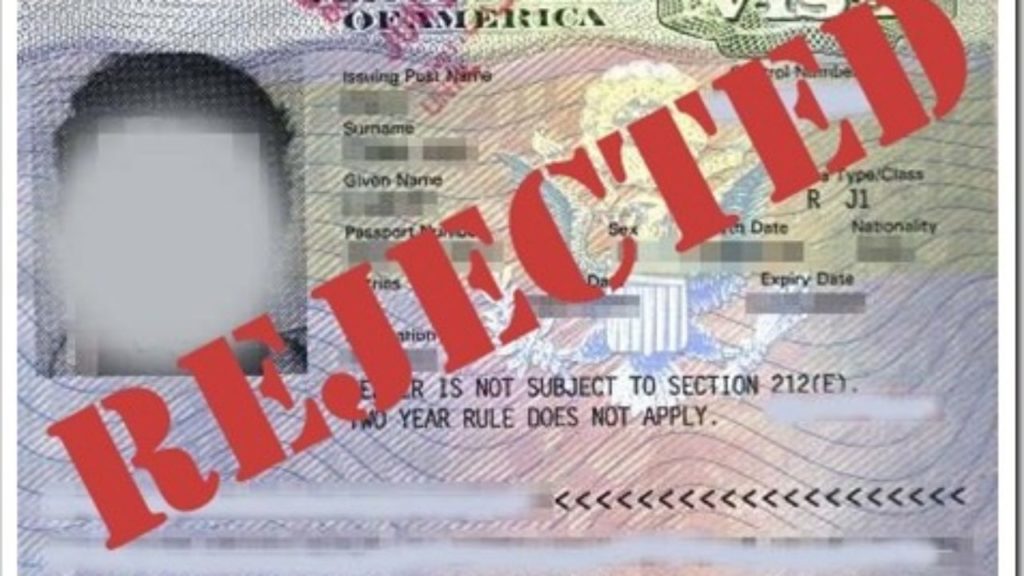H1B Visa Denial Increase By 300% In 4 Years; Cognizant #1 In H1B Visa Denial Cases, Google Has Least Denials

We have recent news from the U.S. Citizenship and Immigration Services (USCIS) office. It seems like the trend of H-1B rejection rates for Indians is showing no signs of improvement. For all of our readers wanting to go to the States on account of a H-1B work visa, need to read this most recent findings.
Indian IT companies are in serious trouble. Not only has the Trump government hiked the rejection rates of Indian H1B visa applications but now we’ve come to know that this visa rejection rate is not uniform for all the companies looking forward to hire Indian talent. Well this is not new news we’ve shared with you.
H-1B Visa Denials Reach a Whole New Level
Amidst the whole scenario for Trump making it difficult for immigrants to eat up an American’s job, leading to cathartic rejections in H1B work visa, we heard some positive news with the start of September that the United States had declared that they shall be working on simplifying the rigid visa application processes for Indians, starting from September 1.
As per the US Consulate, the initiative was aimed to reduce turnaround times for visa renewals and improve the customer service for visa applicants across India.
However, the recent data speaks otherwise. The denial rates for H-1B petitions have increased significantly. According to a National Foundation for American Policy (NFAP) analysis of USCIS, denial rates for H-1B petitions increased from 6% in FY2015 to 24% in the first three quarters of FY2019 for new H-1B petitions for initial employment.
For ‘continuing employment’, there was a 12% rise in declination of H-1B petitions, which was 4 times more as compared to FY2015, when the denial rate was only 3%.
Initial employment petitions are for those who are applying for a new employee and first-time applicants, while petitions for continuing employment are usually extensions for existing employees at the same company or an H-1B visa holder changing to a new employer.
Indian IT Companies Targeted Majorly
We’ve been constantly keeping you updated with the mismatch in the number of H1B visa rejections for Indian based IT companies in the US, over American based ones. The H1B visas for IT firms like Capgemini, Cognizant, Infosys and Wipro is fashionably being mitigated while firms like Amazon, Google or Apple face no such difficulties in hiring Indian talent for the growth of their companies.
- Cognizant saw over 60% of applications for initial employment rejected in FY2019
- Capgemini followed with 55% application rejections
- Wipro with 53% rejections
- Infosys coming close with 45% of such rejections.
Companies that saw the least number of denials were Apple, Facebook, and Cummins, where only 2% of applications were rejected.
- Google : 3% rejection rate
- Walmart : 3% rejection rate
- Amazon: 6% rejection rate
- Mindtree: 5% rejection rate
Request for Evidence Increases Too
Further, instead of denying petitions, USCIS issued Requests for Evidence (RFEs) for many cases. USCIS data up to September 30, 2019 had shown that RFEs were asked for in 40.2% of cases as compared to just 22.3% in 2015 and 38% last year.
The approval rates following RFEs too, have fallen significantly from 83.2% in 2015 to 65.4% in 2019.
Using a RFE, the USCIS asks for further evidence to ascertain if the employee requesting for an extension of their H-1B is in a specialty occupation, to know where the employer will be working during the tenure of their visa and to ensure that the employee is indeed working for the employer sponsoring their visa.

[…] Download Image […]